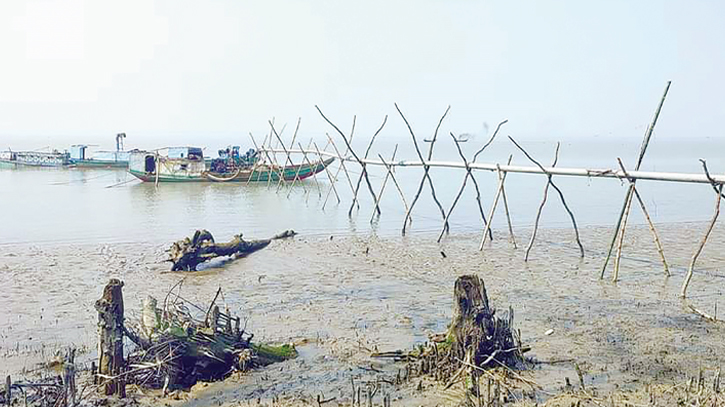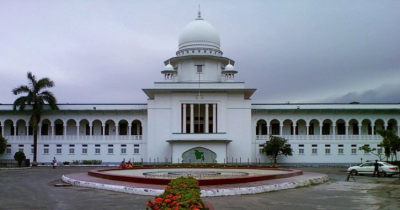
The photo shows illegal sand extraction going on in the river Meghna of Monpura upazila. photo: messenger
Despite previous enforcement efforts, illegal sand extraction continues to plague the Meghna River and Tetulia, facilitated by unscrupulous traders and political influencers.
This unauthorized activity, carried out using dredgers, not only poses a threat to riverbanks but also exacerbates erosion.
Locals have reported that a group of sand traders, with the backing of political figures, has been extracting sands from various points along the Meghna River, including Char Gazipur and Kachia in Bhola Sadar, as well as Char Johir Uddin and Hajipur in Daulatkhan.
Similar unauthorized extraction has also been noted in emerging Char areas in Monpura and Tetulia in Lalmohon upazila of Bhola district. Shockingly, these activities have been ongoing for over a decade, seemingly with permission from the district administration.
It is alleged that political influences have allowed these traders to operate with impunity, evading intervention from local administrations and law enforcement. The gathered sands are transported to different parts of the district and then distributed to various regions across the country on a monthly basis.
Bhola, being a low-lying area, is particularly vulnerable to erosion, especially during the rainy season. The excessive removal of sand exacerbates this issue, leading to the loss of cultivated land and further threatening the area's stability.
While sporadic enforcement efforts have been made by district and upazila administrations, the illegal sand extraction persists, prompting ongoing concern from the community. Deputy Commissioner M. Arifuzzaman has affirmed that efforts to combat illegal sand extraction are ongoing and will persist in the future.
The consequences of illegal sand extraction are far-reaching. It not only disrupts river ecosystems, leading to a decline in biodiversity and long-term ecological damage, but also contributes to increased erosion, affecting riverbanks and altering natural flow patterns.
Furthermore, this activity impacts water quality, disrupting the river's natural filtration process and potentially compromising water quality for both human and animal consumption. The disturbance of the natural balance of sediment in the river further affects its ability to replenish beaches and maintain healthy riverbeds, ultimately impacting river ecosystems and the communities reliant upon them.
Messenger/tareq








